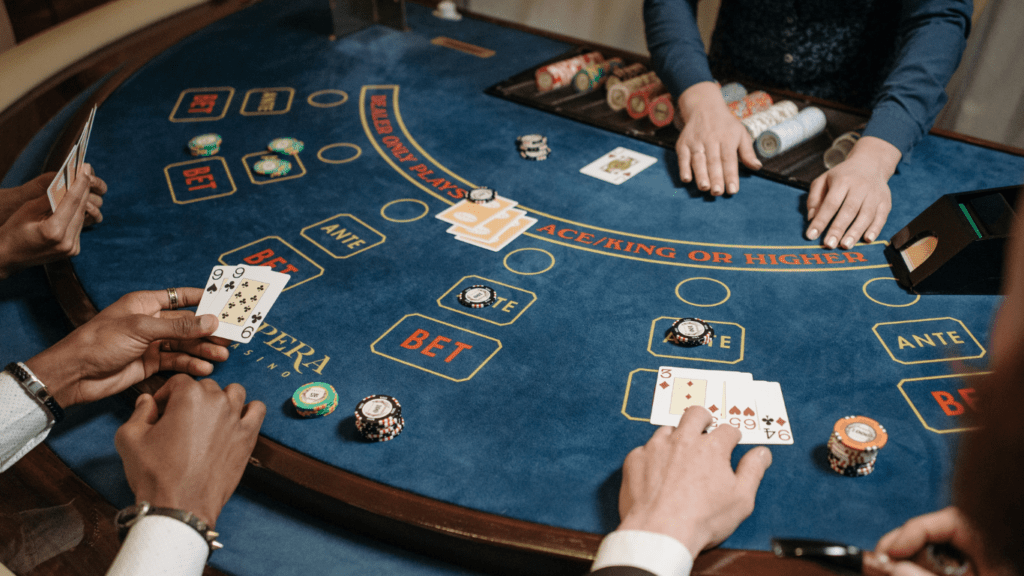What Is Responsible Gaming?
Responsible gaming combines safe practices and awareness to ensure a balanced approach to playing games. It involves setting personal limits on time and money spent, recognizing signs of problematic behavior, and staying informed about the potential risks associated with gaming. By promoting control over one’s gaming habits, responsible gaming helps prevent negative consequences and fosters enjoyable and sustainable experiences.
Two main elements constitute responsible gaming: self-regulation and external tools. Self-regulation involves personal strategies like keeping to budgets, while external tools include software or resources that limit gaming activities. These might feature parental controls or features provided by gaming platforms to help manage playtime.
Recognizing the importance of responsible gaming can enhance the enjoyment and longevity of gaming activities. Through this structured approach, players are empowered to make informed decisions, safeguarding both their well-being and that of those around them.
Importance of Responsible Gaming
Responsible gaming helps players maintain a healthy relationship with their gaming activities. It enhances enjoyment by allowing individuals to set limits on the time and money they spend. Setting these limits prevents gaming from becoming overwhelming or financially harmful. While enjoying gaming, one must be aware of the warning signs of addictive behavior that might lead to serious consequences if ignored. This awareness reduces the likelihood of crossing the line from a recreational pastime to compulsive behavior.
Protecting mental and emotional well-being stands as another critical aspect of responsible gaming. As players engage in gaming, maintaining mental health ensures that they can enjoy games without feeling stress or anxiety. If approached thoughtfully, gaming can offer relaxation and entertainment rather than becoming a source of distress.
Social responsibility is integral to responsible gaming practices. By engaging responsibly, players contribute positively to the gaming community, setting examples for others. This helps reduce stigma attached to gaming by showcasing it as a positive, balanced activity. Responsible gamers promote a culture where support and awareness are encouraged, leading to a better community experience for everyone involved.
The importance of responsible gaming lies in its capacity to create an environment where players can enjoy games as a balanced part of life, safeguarding mental health and fostering a positive gaming culture.
Key Principles of Responsible Gaming

Responsible gaming hinges on a few foundational principles that guide players towards a balanced and enjoyable experience. Let’s delve into these essential guidelines that help maintain control and prevent negative consequences.
Setting Limits
Setting limits is about managing time and money spent on gaming activities. I make a budget that allocates specific funds for gaming, ensuring I don’t overspend. Time limits are equally essential, as I set specific hours of play each week to prevent gaming from affecting other life aspects. Tools like:
- timers
- alerts
can aid in sticking to these boundaries, enhancing my gaming enjoyment without overindulgence.
Self-awareness and Self-control
Self-awareness involves recognizing personal gaming habits and being mindful of emotional states while playing. I monitor my feelings and identify signs of frustration or compulsion. Self-control complements this by consciously deciding when to stop gaming, particularly when I notice it’s interfering with daily responsibilities or causing stress. Together, these practices empower me to regulate my gaming in a healthy manner.
Access to Support Services
Support services play a crucial role in promoting responsible gaming. I familiarize myself with available resources, such as helplines or online forums, that offer guidance and support when gaming becomes challenging. These services provide necessary assistance and can help address problematic behaviors before they escalate. By acknowledging and using these resources, I create an environment where I can enjoy gaming responsibly.
Tools and Resources for Responsible Gaming
Responsible gaming involves having the right tools and resources to maintain a healthy gaming balance. I focus on technological solutions and educational initiatives to support responsible habits.
Apps and Technology Solutions
Gaming control apps offer tools like screen time trackers and expenditure alerts. Apps such as BetBlocker and GamBan help limit access to gambling platforms by blocking certain websites. Game development companies embed features like playtime reminders and spending limits directly into game interfaces, reinforcing responsible habits. Virtual wallets provide budgeting tools, helping players manage in-game purchases effectively.
Educational Programs and Workshops
Educational programs create awareness about gaming addiction and responsible practices. These programs run by organizations teach self-regulation and offer guidance on maintaining a balanced gaming lifestyle. Workshops offer interactive sessions with experts, providing insights into recognizing signs of problem gaming and implementing coping strategies. By understanding emotional and psychological aspects, participants learn how to establish healthy gaming routines.
How to Identify Problematic Gaming Behavior
Recognizing problematic gaming behavior is crucial for maintaining a balanced gaming lifestyle. Identifying issues early helps prevent negative impacts on well-being.
Warning Signs to Watch
- Problematic gaming behavior often manifests through specific warning signs.
- One indicator is neglect of personal responsibilities, such as missing work or school to play games.
- Changes in social interactions, like withdrawing from friends and family, signal trouble.
- Mood swings, including irritability when not gaming, suggest dependency issues.
- Financial problems, such as spending beyond means on gaming-related expenses, may also arise.
- Physical symptoms like fatigue and neglect of personal hygiene are critical indicators.
Steps to Take If You Suspect a Problem
If you suspect a problem with gaming behavior, taking actionable steps is essential. First, assess the extent of the issue by reflecting on changes in daily routines and responsibilities. Begin implementing personal limits on gaming time and expenses. Engage with support networks, such as friends or family, to create accountability. Explore professional resources, including therapy or support groups, for expert guidance. Consider using technological tools that monitor and limit game time, helping enforce healthy habits. Addressing the issue with a proactive approach ensures a sustainable and positive gaming experience.
Benefits of Practicing Responsible Gaming
Practicing responsible gaming offers multiple benefits, enhancing the overall gaming experience. By managing expenses and time, players maintain better financial and personal health. Consistent self-regulation prevents financial strain from excessive in-game purchases or gambling activities.
Knowing one’s limits results in improved mental well-being. Players are less likely to experience stress or anxiety, as they keep gaming a part of a balanced lifestyle. Engaging in responsible gaming reduces the risk of compulsive behaviors, promoting better emotional health over time.
Responsible gaming strengthens social connections. Players interact positively with communities without the pressures of addiction, fostering healthy relationships both in and out of the gaming world. Exercising self-control contributes to constructive dialogues within gaming forums and enhances collaborative gameplay.
Empowerment is a notable advantage. Players make informed decisions, enhancing their autonomy in a hobby they love. Training oneself to manage gaming habits builds discipline and self-awareness, which can translate into other aspects of life.
Incorporating responsible gaming principles can extend player enjoyment. A sustainable approach ensures that gaming remains a source of fun and relaxation, contributing to long-term satisfaction and a positive association with gaming activities.



 Lorenathal Wesley – Cryptocurrency & Ethics Specialist
Lorenathal Wesley serves as the site’s Cryptocurrency & Ethics Specialist, bringing a unique perspective on how blockchain and digital currencies are transforming the casino landscape. With a keen eye on industry trends, Lorenathal examines how cryptocurrency is changing payment methods, enhancing transparency, and increasing security for online gamblers. She also leads discussions on gambling ethics, exploring critical topics like fairness, accountability, and social responsibility in the gaming world. Lorenathal’s insights guide readers through the evolving landscape of crypto-casinos, making complex topics accessible and relevant to players interested in these emerging technologies.
Lorenathal Wesley – Cryptocurrency & Ethics Specialist
Lorenathal Wesley serves as the site’s Cryptocurrency & Ethics Specialist, bringing a unique perspective on how blockchain and digital currencies are transforming the casino landscape. With a keen eye on industry trends, Lorenathal examines how cryptocurrency is changing payment methods, enhancing transparency, and increasing security for online gamblers. She also leads discussions on gambling ethics, exploring critical topics like fairness, accountability, and social responsibility in the gaming world. Lorenathal’s insights guide readers through the evolving landscape of crypto-casinos, making complex topics accessible and relevant to players interested in these emerging technologies.
